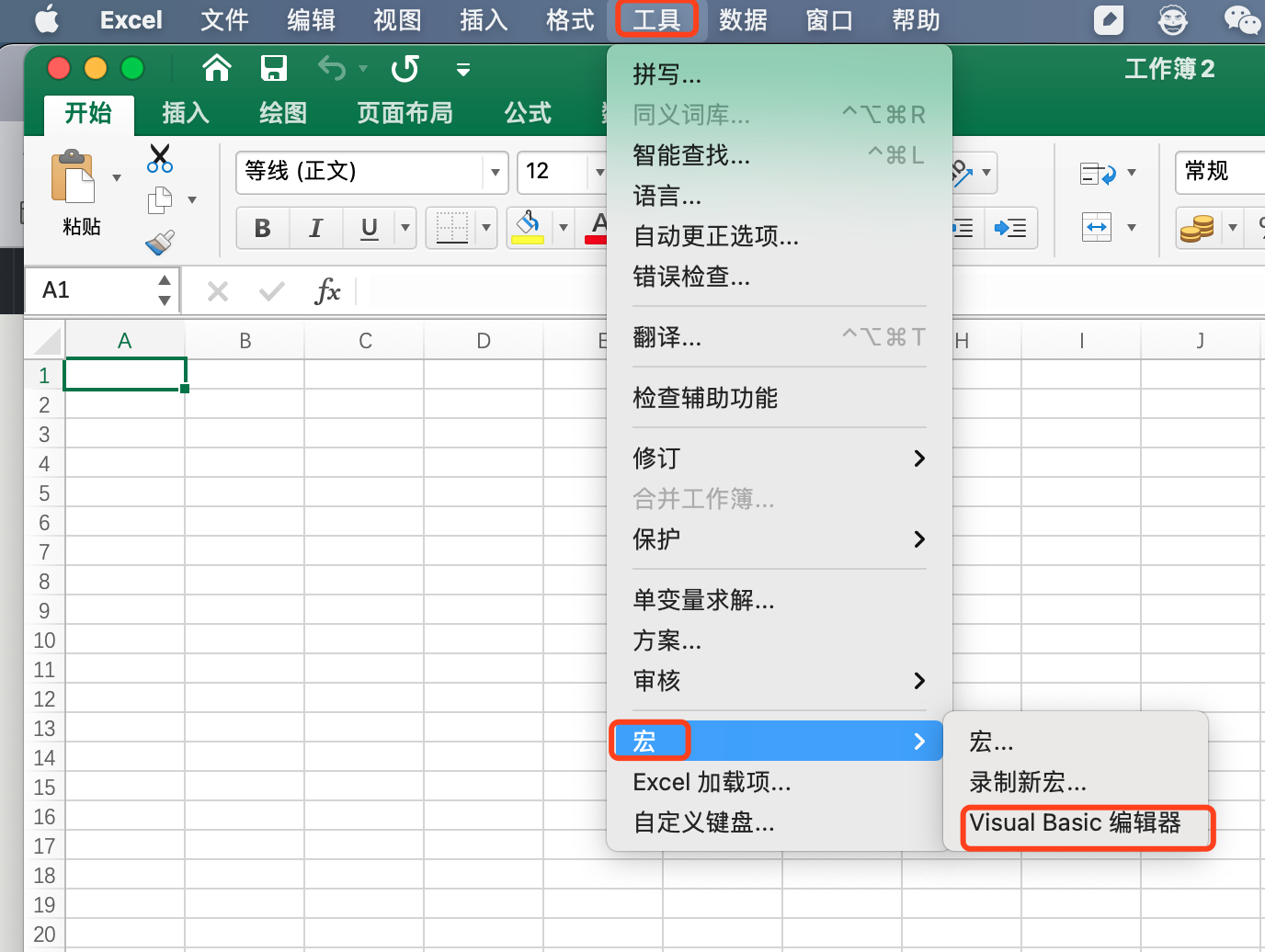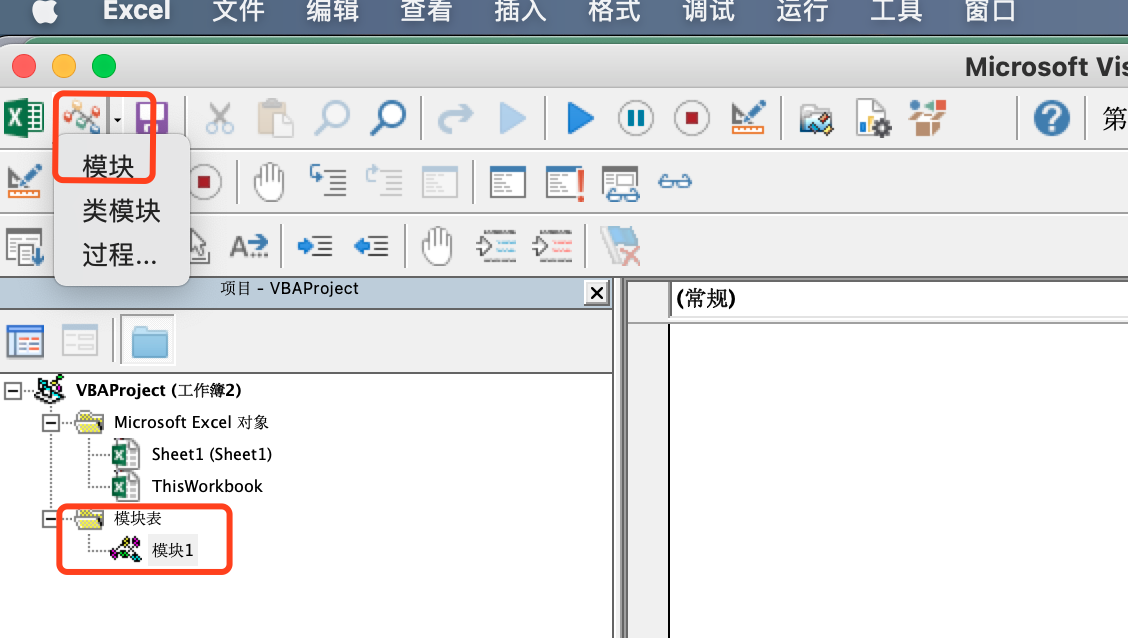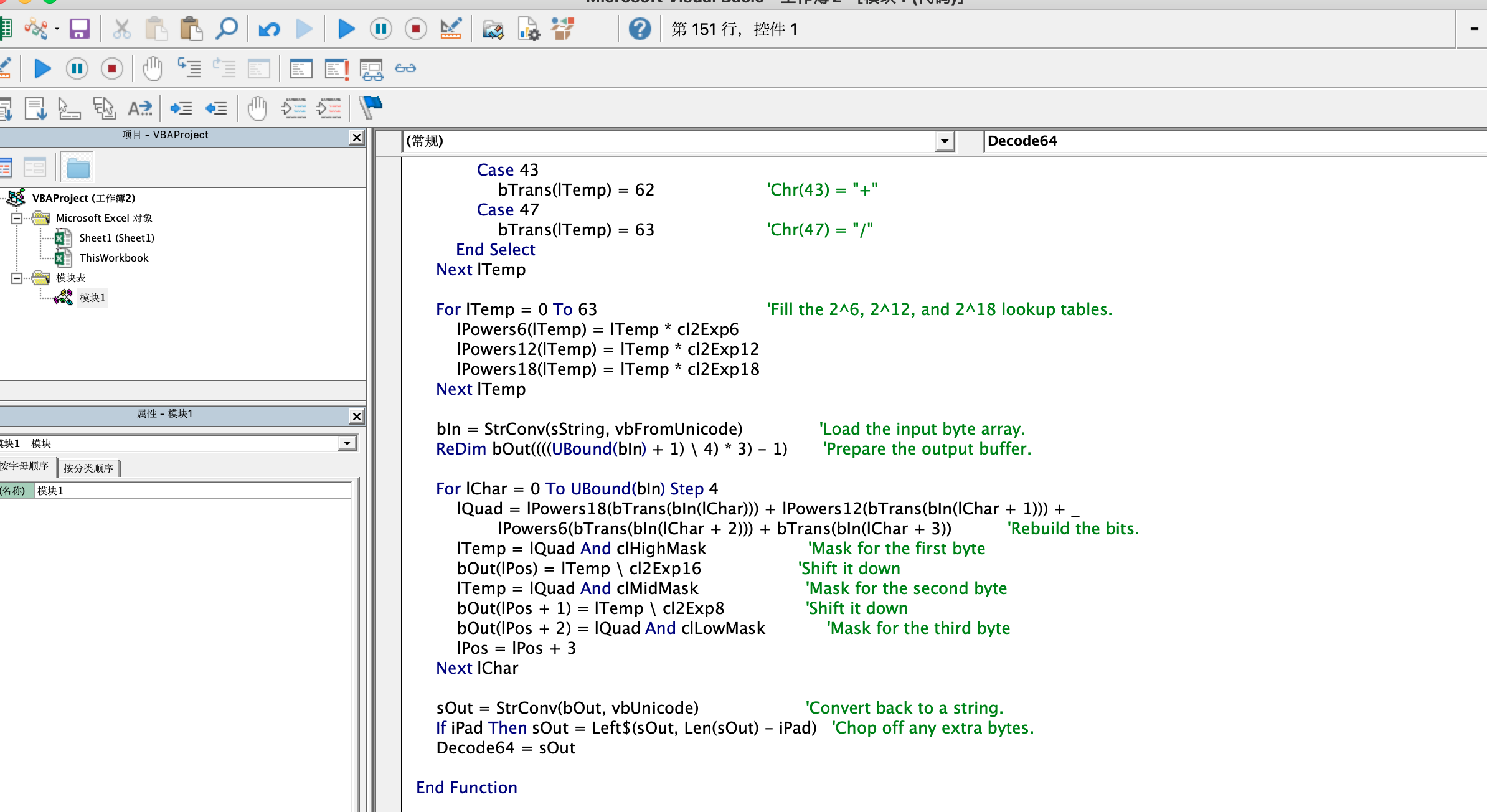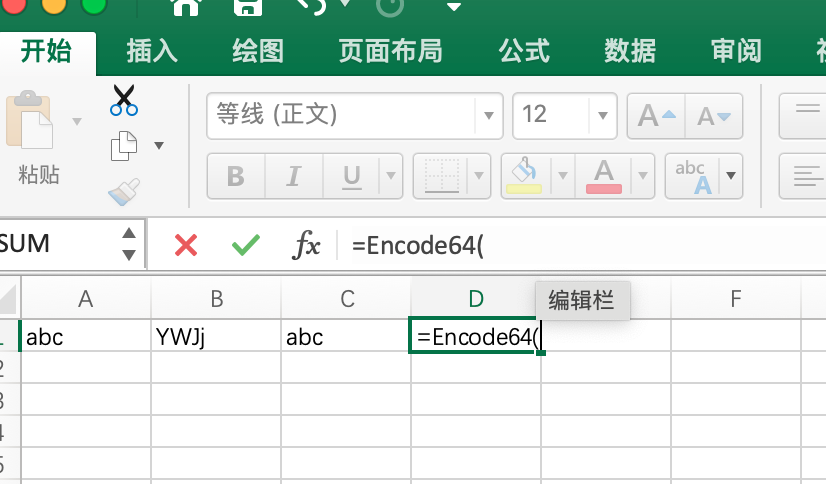adsf
背景
有一个excel文件 有一列是通过base64加密的,需要解密。还不想将文件的解密通过java或者python来做。想着用excel自己看有没函数。搜索网上的,说必须excel安装网络函数才行,看了下网络函数 收费。于是想如何解决这个事情。后来网上搜到可以通过编写VBA来实现。下面是实现步骤。
EXCEL的VB

插入新模块

将网上找的base64加解密方法copy进去

Option Explicit
Private Const clOneMask = 16515072 '000000 111111 111111 111111
Private Const clTwoMask = 258048 '111111 000000 111111 111111
Private Const clThreeMask = 4032 '111111 111111 000000 111111
Private Const clFourMask = 63 '111111 111111 111111 000000
Private Const clHighMask = 16711680 '11111111 00000000 00000000
Private Const clMidMask = 65280 '00000000 11111111 00000000
Private Const clLowMask = 255 '00000000 00000000 11111111
Private Const cl2Exp18 = 262144 '2 to the 18th power
Private Const cl2Exp12 = 4096 '2 to the 12th
Private Const cl2Exp6 = 64 '2 to the 6th
Private Const cl2Exp8 = 256 '2 to the 8th
Private Const cl2Exp16 = 65536 '2 to the 16th
Public Function Encode64(sString As String) As String
Dim bTrans(63) As Byte, lPowers8(255) As Long, lPowers16(255) As Long, bOut() As Byte, bIn() As Byte
Dim lChar As Long, lTrip As Long, iPad As Integer, lLen As Long, lTemp As Long, lPos As Long, lOutSize As Long
For lTemp = 0 To 63 'Fill the translation table.
Select Case lTemp
Case 0 To 25
bTrans(lTemp) = 65 + lTemp 'A - Z
Case 26 To 51
bTrans(lTemp) = 71 + lTemp 'a - z
Case 52 To 61
bTrans(lTemp) = lTemp - 4 '1 - 0
Case 62
bTrans(lTemp) = 43 'Chr(43) = "+"
Case 63
bTrans(lTemp) = 47 'Chr(47) = "/"
End Select
Next lTemp
For lTemp = 0 To 255 'Fill the 2^8 and 2^16 lookup tables.
lPowers8(lTemp) = lTemp * cl2Exp8
lPowers16(lTemp) = lTemp * cl2Exp16
Next lTemp
iPad = Len(sString) Mod 3 'See if the length is divisible by 3
If iPad Then 'If not, figure out the end pad and resize the input.
iPad = 3 - iPad
sString = sString & String(iPad, Chr(0))
End If
bIn = StrConv(sString, vbFromUnicode) 'Load the input string.
lLen = ((UBound(bIn) + 1) \ 3) * 4 'Length of resulting string.
lTemp = lLen \ 72 'Added space for vbCrLfs.
lOutSize = ((lTemp * 2) + lLen) - 1 'Calculate the size of the output buffer.
ReDim bOut(lOutSize) 'Make the output buffer.
lLen = 0 'Reusing this one, so reset it.
For lChar = LBound(bIn) To UBound(bIn) Step 3
lTrip = lPowers16(bIn(lChar)) + lPowers8(bIn(lChar + 1)) + bIn(lChar + 2) 'Combine the 3 bytes
lTemp = lTrip And clOneMask 'Mask for the first 6 bits
bOut(lPos) = bTrans(lTemp \ cl2Exp18) 'Shift it down to the low 6 bits and get the value
lTemp = lTrip And clTwoMask 'Mask for the second set.
bOut(lPos + 1) = bTrans(lTemp \ cl2Exp12) 'Shift it down and translate.
lTemp = lTrip And clThreeMask 'Mask for the third set.
bOut(lPos + 2) = bTrans(lTemp \ cl2Exp6) 'Shift it down and translate.
bOut(lPos + 3) = bTrans(lTrip And clFourMask) 'Mask for the low set.
If lLen = 68 Then 'Ready for a newline
bOut(lPos + 4) = 13 'Chr(13) = vbCr
bOut(lPos + 5) = 10 'Chr(10) = vbLf
lLen = 0 'Reset the counter
lPos = lPos + 6
Else
lLen = lLen + 4
lPos = lPos + 4
End If
Next lChar
If bOut(lOutSize) = 10 Then lOutSize = lOutSize - 2 'Shift the padding chars down if it ends with CrLf.
If iPad = 1 Then 'Add the padding chars if any.
bOut(lOutSize) = 61 'Chr(61) = "="
ElseIf iPad = 2 Then
bOut(lOutSize) = 61
bOut(lOutSize - 1) = 61
End If
Encode64 = StrConv(bOut, vbUnicode) 'Convert back to a string and return it.
End Function
Public Function Decode64(sString As String) As String
Dim bOut() As Byte, bIn() As Byte, bTrans(255) As Byte, lPowers6(63) As Long, lPowers12(63) As Long
Dim lPowers18(63) As Long, lQuad As Long, iPad As Integer, lChar As Long, lPos As Long, sOut As String
Dim lTemp As Long
sString = Replace(sString, vbCr, vbNullString) 'Get rid of the vbCrLfs. These could be in...
sString = Replace(sString, vbLf, vbNullString) 'either order.
lTemp = Len(sString) Mod 4 'Test for valid input.
If lTemp Then
Call Err.Raise(vbObjectError, "MyDecode", "Input string is not valid Base64.")
End If
If InStrRev(sString, "==") Then 'InStrRev is faster when you know it's at the end.
iPad = 2 'Note: These translate to 0, so you can leave them...
ElseIf InStrRev(sString, "=") Then 'in the string and just resize the output.
iPad = 1
End If
For lTemp = 0 To 255 'Fill the translation table.
Select Case lTemp
Case 65 To 90
bTrans(lTemp) = lTemp - 65 'A - Z
Case 97 To 122
bTrans(lTemp) = lTemp - 71 'a - z
Case 48 To 57
bTrans(lTemp) = lTemp + 4 '1 - 0
Case 43
bTrans(lTemp) = 62 'Chr(43) = "+"
Case 47
bTrans(lTemp) = 63 'Chr(47) = "/"
End Select
Next lTemp
For lTemp = 0 To 63 'Fill the 2^6, 2^12, and 2^18 lookup tables.
lPowers6(lTemp) = lTemp * cl2Exp6
lPowers12(lTemp) = lTemp * cl2Exp12
lPowers18(lTemp) = lTemp * cl2Exp18
Next lTemp
bIn = StrConv(sString, vbFromUnicode) 'Load the input byte array.
ReDim bOut((((UBound(bIn) + 1) \ 4) * 3) - 1) 'Prepare the output buffer.
For lChar = 0 To UBound(bIn) Step 4
lQuad = lPowers18(bTrans(bIn(lChar))) + lPowers12(bTrans(bIn(lChar + 1))) + _
lPowers6(bTrans(bIn(lChar + 2))) + bTrans(bIn(lChar + 3)) 'Rebuild the bits.
lTemp = lQuad And clHighMask 'Mask for the first byte
bOut(lPos) = lTemp \ cl2Exp16 'Shift it down
lTemp = lQuad And clMidMask 'Mask for the second byte
bOut(lPos + 1) = lTemp \ cl2Exp8 'Shift it down
bOut(lPos + 2) = lQuad And clLowMask 'Mask for the third byte
lPos = lPos + 3
Next lChar
sOut = StrConv(bOut, vbUnicode) 'Convert back to a string.
If iPad Then sOut = Left$(sOut, Len(sOut) - iPad) 'Chop off any extra bytes.
Decode64 = sOut
End Function
关闭之后即可使用

没有评论